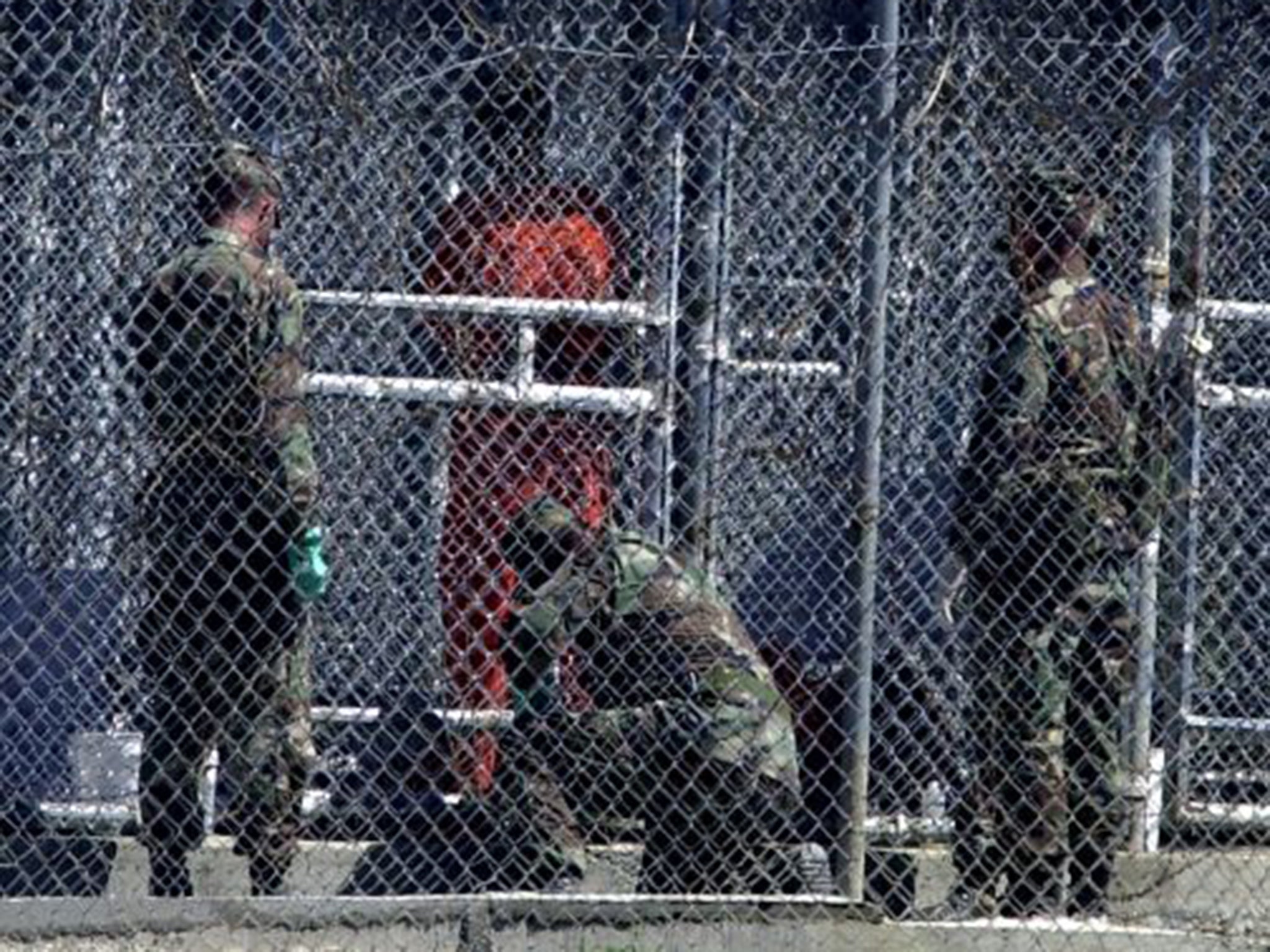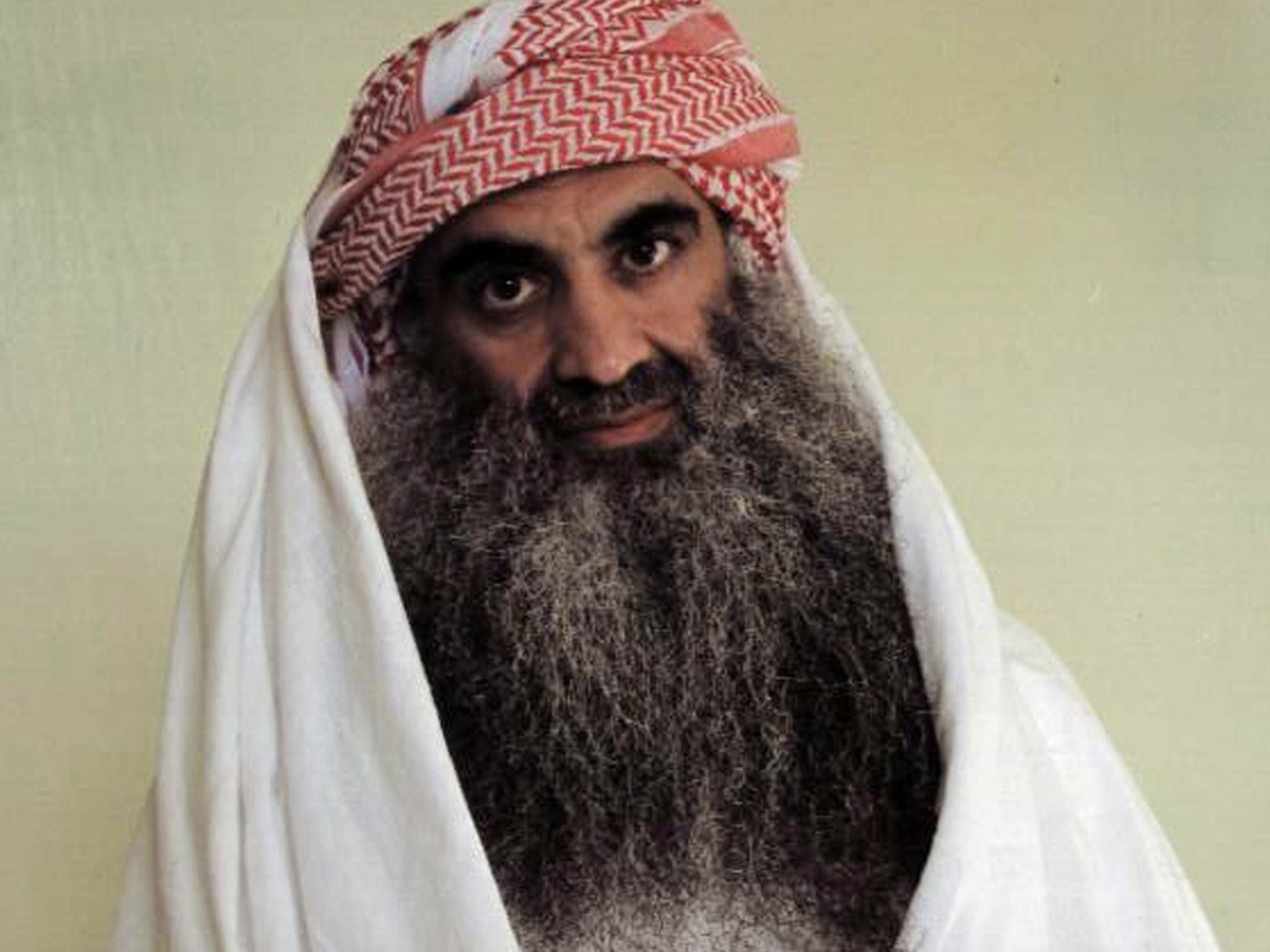CIA 'torture report': Agency conduct was driven by pressure to link Iraq to al-Qaeda following 9/11
The White House wanted to justify the 2003 invasion

Your support helps us to tell the story
From reproductive rights to climate change to Big Tech, The Independent is on the ground when the story is developing. Whether it's investigating the financials of Elon Musk's pro-Trump PAC or producing our latest documentary, 'The A Word', which shines a light on the American women fighting for reproductive rights, we know how important it is to parse out the facts from the messaging.
At such a critical moment in US history, we need reporters on the ground. Your donation allows us to keep sending journalists to speak to both sides of the story.
The Independent is trusted by Americans across the entire political spectrum. And unlike many other quality news outlets, we choose not to lock Americans out of our reporting and analysis with paywalls. We believe quality journalism should be available to everyone, paid for by those who can afford it.
Your support makes all the difference.The CIA tortured al-Qaeda suspects because it wanted evidence that Saddam Hussein was linked to 9/11 in order to justify the invasion of Iraq in 2003. The agency was under intense pressure from the White House and senior figures in the Bush administration to extract confessions confirming co-operation between the Iraqi leader and al-Qaeda, although no significant evidence was ever found.
The CIA has defended its actions by claiming that it was “unknowable” if torture had produced results, although the chairman of the Senate Intelligence Committee, Dianne Feinstein, maintains torture produced nothing of value.
A second line of defence put forward by defenders of the CIA is to say that the agency was swept up in the reaction to 9/11 in the US and needed to find out quickly if there were going to be further attacks.
Telling evidence about the motives of the CIA in instituting its torture programme comes in a report on detainee abuse issued by the Senate Armed Services Committee in 2009. It cited a former US Army psychiatrist, Major Charles Burney, who had been stationed at Guantanamo Bay, as saying interrogators were compelled to give priority to one line of questioning.
“A large part of the time we were focused on trying to establish a link between al-Qaeda and Iraq,” he said. When interrogators failed to do this “there was more and more pressure to resort to measures that might produce more immediate results”.
This explanation is confirmed by an unnamed former senior US intelligence officer familiar with the interrogations, who told the McClatchy news agency that there were two reasons “why these interrogations were so persistent and why extreme methods were used”. One was fear there might be a second attack by al-Qaeda. He added that “for most of 2002 and into 2003, [Vice-President Dick] Cheney and [Defence Secretary Donald] Rumsfeld were also demanding proof of the links between al-Qaeda and Iraq.”
On being told repeatedly by the CIA that there was no reliable intelligence about such links, Mr Cheney and Mr Rumsfeld insisted harsher methods be used. The officer said: “There was constant pressure on the intelligence agencies and the interrogators to do whatever it took to get that information out of the detainees, and when people kept coming up empty, they were told by Cheney’s and Rumsfeld’s people to push harder.”
The most severe torture sessions took place in the run-up to the war in 2003, suggesting that rather than preventing further action by al-Qaeda, the US administration was intent on justifying the invasion of Iraq. One prisoner, Abu Zubaydah, who was wrongly thought to be an al-Qaeda leader by his interrogators, was waterboarded 83 times in August 2002, and Khalid Sheikh Mohammed 183 times in March 2003. The first questions asked of the latter after he was captured in Rawalpindi, Pakistan, were all about Iraq and not about forthcoming al-Qaeda attacks, according to The Eleventh Day: The Full Story of 9/11 by Anthony Summers and Robbyn Swan.

Senior members of the Bush administration went on pressing for the use of brutal methods amounting to torture against Iraqi prisoners taken after the invasion, trying to make them corroborate an al-Qaeda connection. Summers and Swan cite the CIA’s Charles Duelfer, in charge of interrogating Iraqi officials, as saying that senior officials in Washington, although not in the CIA, had suggested waterboarding an Iraqi official to get the evidence they wanted. Two other US intelligence officers said the proposal came from Mr Cheney’s office.
The CIA was in a poor position to resist pressure from the administration because of its failure to predict or prevent 9/11. But for security agencies, it was a moment of opportunity to gain bigger budgets, more personnel and wider authority in order to punish the perpetrators and prevent a second attack.
Rewards went to any person or institution showing activity in pursuing these ends, regardless of its effectiveness. One use of the “enhanced interrogation techniques” programme was to make the CIA a more important player when it came to bureaucratic rivalries in Washington.
Join our commenting forum
Join thought-provoking conversations, follow other Independent readers and see their replies
Comments